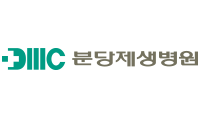Bundang JESAENG hospital
“RemoteCall is the ‘Leader in Hospital IT Information’.”-Medical Information Manager-
| Major business | Location |
|---|---|
| General Hospital | Bundang-gu, Seongnam, Gyeonggi-do, South Korea |
About Company
Bundang jesaeng Hospital, founded in South Korea in 1998, is the first hospital to introduce medical records electronically (EMR), a prescription transmission system, and a picture archiving and communication system, (PACS) instead of using information charts. Bundang soon after became successfully known as a computerized hospital.
In March 2008, the specialist of cerebrovascular opened the “24-hour stoke center“- the first one in Korea; now an emergency center offering services for 24 hours a day. Patients throughout are being brought in by an ambulance and the arrival is being confirmed through video.
Challenge
In the beginning, all the operations that occurred at Bundang hospital were linked to the computer system, which was an information system tip.
The main eight-story building is composed of a total of 586 rooms, and the five-story annex has 174 rooms. In the general ward there are 37 intensive care beds and 22 emergency beds, include 704 rooms for the nursery, delivery rooms, dialysis rooms and recovery rooms. The hospital director and committee, QI room, education research department, nursing department, administrative department and health promotion center operate separately in the Biomedical Research Center.
In the general hospital, the information that is directly connected to the health of the patient is linked to many systems dealing in real time that are running for 24 hours. If an employee had an issue with the PC, there was a possibility that it could affect patients. On the hospital site you need RemoteCall so that you can remotely connect immediately to provide support to the system of the hospital.
"In the general hospital, the information that is directly connected to the health of the patient is linked to many systems dealing in real time that are running for 24 hours. If an employee had an issue with the PC, there was a possibility that it could affect patients. On the hospital site you need RemoteCall so that you can remotely connect immediately to provide support to the system of the hospital."
However, as the scale of the hospital increased, so did the work linked with the existing systems in place. Continuously, technicians would need to visit the site to be able to provide a smooth business by installing programs on PCs or setting up networks. These employees would need to be able to be reached day or night to respond to any problems or offer support, which would need to be answered quickly. Additionally, the number of departments surpassed the number of technicians providing support which would take too much time, and some cases ultimately were not getting resolved. The system that was in place was inefficient and not reliable.
Solution
Prior to the introduction of the RemoteCall, employees of Bundang jesaeng hospital were skeptical about the effectiveness and impact RemoteCall would have. However, after the implementation of RemoteCall and experiencing it hands on, they saw that it was possible to support each department within a short time without the need to visit. Everyday problems from PC configurations to the proper use of the hospital information systems, program installations or network setting resolutions were being solved remotely, immediately. Above all, it took the need away to have to visit each department in order to determine the cause of the problem. RemoteCall allows us to solve the problem in one shot, whether on location or outside of the hospital, and because of this our problem resolution rate has increased significantly along with the satisfaction of our employees.
"Trying to explain an issue over the phone could become a hassle, but surpassing that all together and solving the problem by directly viewing the customer’s screen has made things overall so much easier. It was like taking a huge weight off our shoulder; with the extra time we have left over we can support more customers during the day."
Highlights
- RemoteCall plays an urgent role in a hospital with a complex system that is being used in a variety of departments such as the emergency center.
- RemoteCall is also beneficial when the hospital introduces new medical equipment. It lends a hand while trying to educate employees on how to properly use a new program or tools.
- Prior to providing remote support a substantial amount of time was being spent on solving one problem, but after five or more problems are being solved a day. Not only has the work satisfaction improved greatly, but so as the resolution rate.


